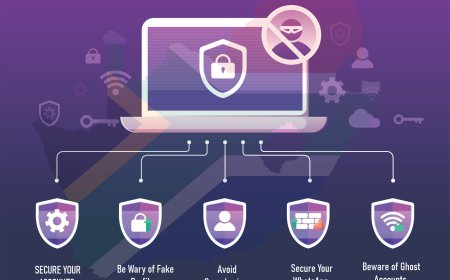Bridging the Cyber Security Awareness Gap in Tertiary Institutes
In the digital age, where technology has become an integral part of our daily lives, the need for robust cyber security measures has never been more pressing. However, a concerning trend has emerged, with tertiary institutes in Zimbabwe often lagging behind in promoting and enforcing cyber security awareness among their students and staff.

As we celebrate Cyber Security Awareness Month, it is crucial to recognize the pivotal role that tertiary institutes play in shaping the future of our nation's digital landscape. These institutions serve as hubs of knowledge and innovation, and it is their responsibility to equip the next generation with the necessary skills and mindset to navigate the ever-evolving cyber threats.
Unfortunately, many tertiary institutes in Zimbabwe have yet to prioritize cyber security awareness as a year-round initiative. The focus is often on addressing cyber incidents reactively, rather than proactively educating and empowering the academic community to become the first line of defense against cyber threats.
This lack of consistent and comprehensive cyber security awareness can have far-reaching consequences. Students and staff may unknowingly engage in risky online behavior, exposing sensitive information or falling victim to cyber attacks. Furthermore, the absence of a strong cyber security culture within these institutions can hinder the development of a robust and resilient digital ecosystem, ultimately limiting the country's technological progress.
To bridge this gap, tertiary institutes must take a proactive approach to cyber security awareness. This should include regular training sessions, workshops, and awareness campaigns that educate the community on best practices, emerging threats, and the importance of cyber hygiene. By making cyber security a year-round priority, these institutes can instill a culture of cyber resilience and empower their students and staff to become ambassadors of cyber security within their communities.
Moreover, tertiary institutes should consider incorporating Online Safety into their ICT modules, ensuring that students, regardless of their field of study, are equipped with the necessary knowledge and skills to navigate the digital landscape securely. This holistic approach will not only benefit the individual students but also contribute to the development of a cyber-savvy workforce, capable of driving innovation and safeguarding Zimbabwe's digital future.
A Call for Tertiary Institutes to Lead the Charge

Daniel Masiya, a young cybersecurity enthusiast and recent graduate from Telone Center for Learning, echoes the importance of this initiative.
"My Institute was the gatekeeper of my digital world," he says. "They had a responsibility to ensure that l was equipped with the knowledge and tools to defend myself against cyber threats."
"As a student, I've always been fascinated by the world of technology and the importance of safeguarding our digital assets," Masiya says. "However, I was surprised to find that cybersecurity was not given the attention it deserves. It's as if we're preparing our students for a future that doesn't account for the very real threats that exist in the online realm."
Masiya's concerns are not unfounded. The digital landscape has become a battleground for cybercriminals, and the risks of data breaches, ransomware attacks, and identity theft have never been more prevalent. Tertiary institutions, which often hold sensitive information and serve as hubs of innovation, are prime targets for these malicious actors.
"Students like myself are eager to learn and participate in cybersecurity initiatives, but the lack of awareness and resources within our institutions is a significant barrier," Masiya laments. "We want to be empowered to protect ourselves, our institutions, and our communities from the growing cyber threats, but the opportunities for practical experience are few and far between."
"The 2023 hackathon at Baker Tilly Digital was an eye-opening experience," Masiya recounts. "I realized that cybersecurity is not just for experts – it's a field that anyone can excel in with the right guidance and opportunities. If only our tertiary institutions would embrace this mindset and integrate cybersecurity into their Annual programs, imagine the impact it could have on our future workforce and the security of our nation's digital infrastructure."
The time for action is now. As we celebrate Cybersecurity Awareness Month, it is imperative that our tertiary institutions heed the call and prioritize the integration of a compulsory Online Safety in ICT modules. By empowering students like Daniel Masiya and fostering a culture of digital resilience, we can ensure that our future leaders are equipped to navigate the complex and ever-evolving cyber landscape.
What's Your Reaction?
 Like
1
Like
1
 Dislike
0
Dislike
0
 Love
0
Love
0
 Funny
0
Funny
0
 Angry
0
Angry
0
 Sad
0
Sad
0
 Wow
0
Wow
0









































